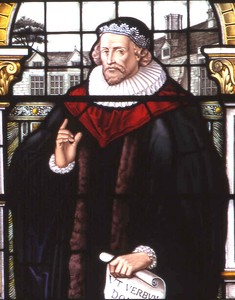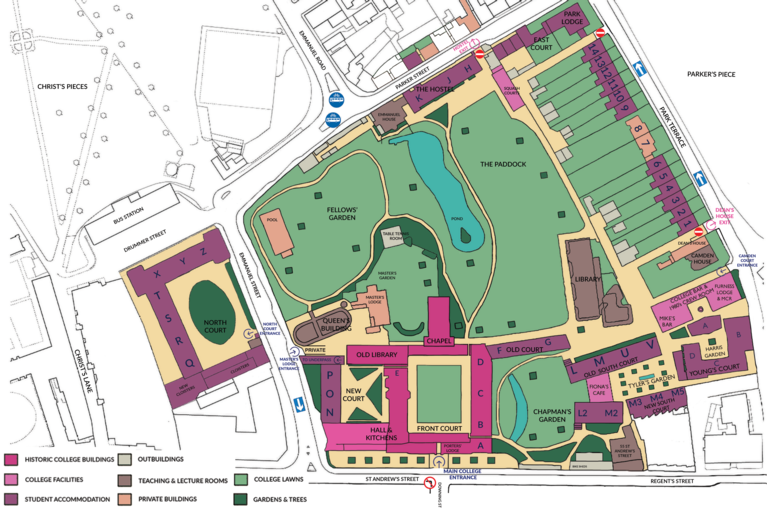Laurence Chaderton (1536 - 1640)

First Master of Emmanuel and one of those responsible for producing the 'King James' Authorised Version of the Bible
The intended character of Emmanuel College was summed up in the first Master, Laurence Chaderton, without whom, said Mildmay, he would rather found no college. Chaderton, born at Oldham in Lancashire, in 1562 entered Christ's College, where despite a staunchly Catholic upbringing and his father's strong disapproval he turned Calvinist. He excelled in Latin, Greek, and Hebrew, and became a learned theologian and a most popular preacher. (Once, when he had preached already for two hours, his congregation cried out 'For God's sake, sir, go on!') As a fellow of Christ's from 1568 to 1577 (when he married) he was influential in making his college 'a Puritan seminary in all but name', and his systematic programme of bible study and discussion is good evidence for the methods of the' prophesyings' which so distressed Queen Elizabeth. For all his Puritan ardour, Chaderton was at one with Mildmay in regarding such things as the wearing of surplices in college chapels as 'matters indifferent', as he was in his desire for conformity to church order as by law established. It may be that Mildmay had hoped to see him elected Master of Christ's when the office fell vacant in 1581, in which case Mildmay's purposes might have been achieved within the framework of the old college. As it was, he was the ideal man to be Master of the new one.
Chaderton was one of those who pleaded the Puritan cause at the Hampton Court conference in 1604; and it was there that he excused the practice of 'sitting communions' at Emmanuel 'by reason of the seats so placed as they be'. He served on one of the committees of revisers who produced the' Authorised Version' of the Bible in 1611, when he was already about seventy-five; and he continued to preach at St Clement's in Cambridge till he was over eighty. He remained Master of Emmanuel for four or five years after that, resigning voluntarily in 1622 in favour of John Preston. He continued to live near the College, in close touch with College affairs. Even in 1635, at well over ninety, he spoke on its behalf at Hampton Court when Archbishop Laud claimed the right of visitation of the universities. He died in 1640, in the Mastership of Richard Holdsworth (having outlived both Preston and his successor William Sandcroft) at the rare age of almost 103, and was buried in the original chapel. (His remains were transferred to the present one on its completion, and lie beneath the inscribed slab just within the entrance.) His life, written up by William Dillingham (Master 1643-1662) from materials collected by Archbishop Sancroft from Holdsworth and others who knew him well, was published in Latin in 1700, and in translation by E. S. Shuckburgh in 1884.

